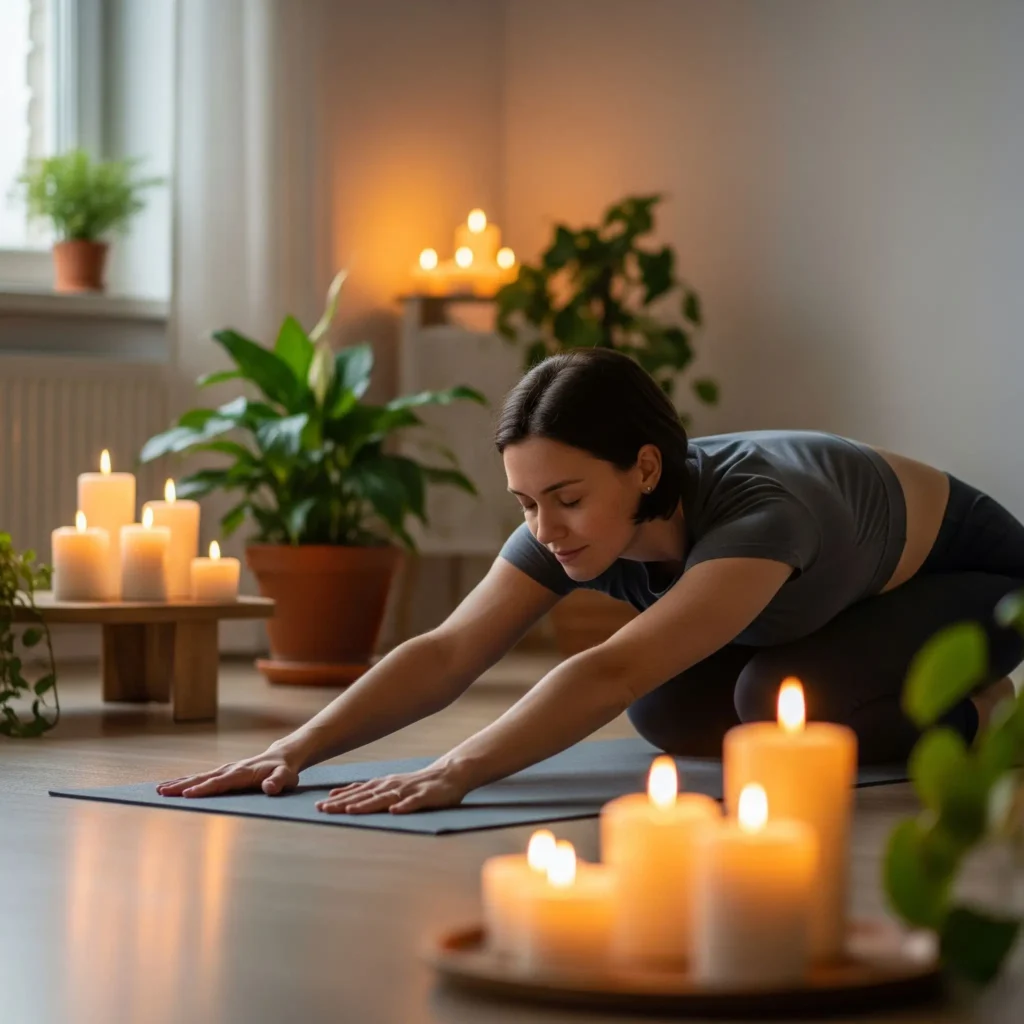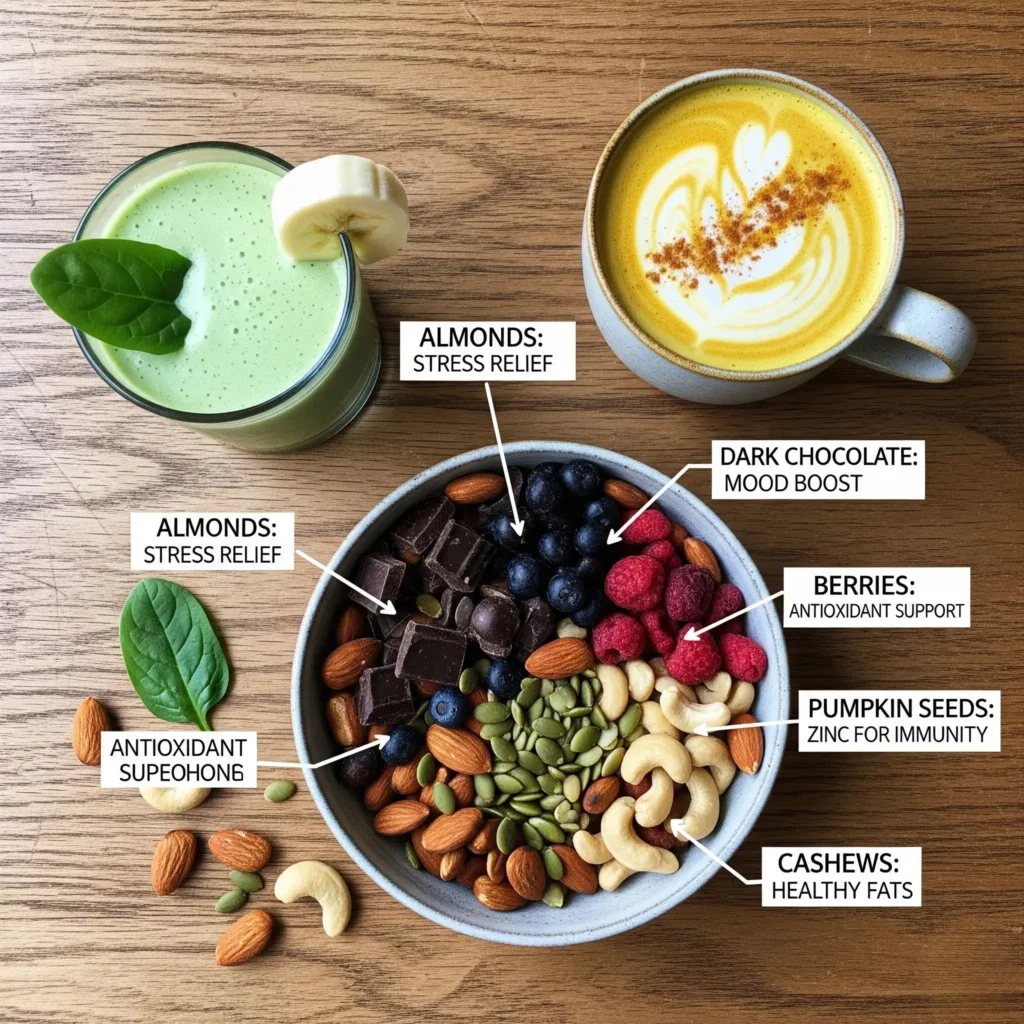Every day, you brush your teeth, wash your face, and rinse off the physical grime that life leaves behind. It’s automatic, part of your routine. But when was the last time you cleared out the emotional residue? The tension from a disagreement, the weight of a self-critical thought, or that quiet anxiety you’ve been carrying? In a culture that praises physical cleanliness, emotional hygiene is often ignored. You’ve been taught to care for your body, but not your inner world. This article is your reminder that your mind needs daily care too. Because emotional hygiene isn’t optional, it’s essential for balance, clarity, and peace of mind.
📘 What Is Emotional Hygiene?
🧠 The Forgotten Practice of Mental Maintenance
You already know how important it is to brush your teeth and shower daily. But what about the invisible buildup, your thoughts, stress, and emotions? Emotional hygiene is the practice of tending to your mental and emotional state with the same regularity and care you give your physical health.
At its core, emotional hygiene is about creating small, consistent routines that help you process feelings, let go of mental clutter, and restore inner balance. Just like a daily detox for your mind, it clears space for clarity, focus, and resilience.
Psychologist Guy Winch, in his popular TED Talk “Why We All Need to Practice Emotional First Aid,” explains that you’re taught how to care for a physical cut but rarely how to handle emotional pain. When you practice emotional hygiene routines, you reduce stress, lower the risk of emotional burnout, and strengthen your ability to bounce back from setbacks.
It’s not about being overly positive. It’s about being emotionally responsible.
⚠️ What Happen When You Neglect Emotional Hygiene
You might not see the damage at first, but you feel it.
- Your anxiety creeps up faster.
- You find yourself snapping at people for no reason.
- Simple decisions feel overwhelming.
- Your mood swings become harder to manage.
Neglecting emotional hygiene is like ignoring a physical wound; it doesn’t just disappear. It gets worse. Over time, unresolved emotions can “infect” your thought patterns, relationships, and overall well-being.
Without a daily emotional detox, you carry yesterday’s stress into today, and tomorrow too.
Practicing emotional hygiene isn’t indulgent, it’s essential.
🧼 Why You Prioritize Physical Cleanliness Over Mental Cleanliness

🧴 What You Can See vs. What You Feel
You’ve been taught to shower, groom, and look “put together” every day. Society rewards outward cleanliness because it’s visible. But emotions? They’re quiet, invisible, and often inconvenient. So you learn to ignore them, suppress them, or just push through.
But here’s the truth: ignoring what you feel doesn’t make it disappear. It only buries it deeper, where it can quietly shape your decisions, your behavior, and your inner peace.
When you prioritize your appearance but not your emotional state, you create an imbalance that eventually shows up, through exhaustion, burnout, irritability, or even physical symptoms.
The Emotional Plaque You Carry Without Noticing
Think of your emotions like mental plaque. You might not see them build up day by day, but over time, the impact becomes clear. Stress, guilt, anger, and sadness, when left unprocessed, don’t vanish. They compound.
That moment of self-doubt you brushed off?
The quiet resentment you swallowed last week?
The anxiety you pretended wasn’t there?
They linger. And like unbrushed teeth, your mind begins to decay from the inside out.
Practicing daily emotional hygiene routines gives you a way to gently, consistently cleanse your inner world, just like you do with your body.
🌿 Daily Emotional Hygiene Routines to Start Today

Creating emotional balance doesn’t require hours of meditation or expensive tools. It starts with small, intentional actions that help you clear your mental space and reconnect with yourself.
You already have routines for your body, now it’s time to build ones for your emotional well-being.
☀️ 1. Morning Emotional Reset
How you start your day matters more than you think. A chaotic morning often leads to a scattered mind. That’s why a quick emotional check-in right after waking can shape the tone of your entire day.
Try this routine:
- Before looking at your phone, sit still for 1–2 minutes.
- Ask yourself: “What emotion is sitting with me this morning?”
- Jot down one word in a notebook.
- Set an intention: “Today, I choose to stay grounded,” or “I let go of yesterday’s stress.”
This simple act creates a moment of emotional awareness before the world pulls you in.
⏸️ 2. Midday Check-In
Life moves fast. You respond to emails, messages, conversations, but when do you respond to yourself?
Set a gentle alarm or visual cue (like a sticky note) to pause and tune in mid-morning or mid-afternoon.
Ask yourself:
- What am I feeling right now?
- Did something trigger me today?
- What do I need in this moment, space, silence, food, movement?
Even 60 seconds of reflection can reset your internal pace and lower emotional friction.
🌙 3. Nighttime Emotional Detox
Just like you wash your face before bed, your emotions need a rinse too.
Evening routine ideas:
- Free-write your thoughts for five minutes, no filter, no editing.
- Name one thing you’re grateful for and one thing you’re releasing.
- Practice 4-7-8 breathing or a short guided meditation to calm your nervous system.
When you go to sleep without emotional baggage, your mind rests deeper, and so does your body.
🚧 4. Boundaries as Emotional Filters
Not everything deserves access to your mental space. Boundaries aren’t walls; they’re filters that keep you safe and steady.
Start small:
- Say “I’ll think about it” before saying yes.
- Mute or unfollow accounts that trigger comparison or stress.
- Designate tech-free hours to reduce emotional overstimulation.
Boundaries are a form of daily emotional detox, they help you stop clutter before it enters.
🥗 Emotional Hygiene Through Food & Mood

Your brain isn’t isolated from the rest of your body; it’s deeply connected to your gut, your hormones, and what you eat. That’s why emotional hygiene isn’t just about journaling or breathing exercises; it also includes what goes on your plate.
When you fuel your body with nourishing foods, you give your mind the support it needs to stabilize mood, reduce anxiety, and think clearly.
🧠 The Gut-Brain Connection: More Than a Trend
You’ve probably heard the phrase “gut feeling.” It’s not just a metaphor. The gut is often called the second brain because of its direct link to your central nervous system through the vagus nerve.
When your gut is inflamed or imbalanced, it sends stress signals to your brain, which can affect your mood and mental clarity. Processed foods, excess sugar, and lack of fiber can quietly sabotage your emotional balance.
On the other hand, a clean, nutrient-rich diet can act as a form of daily emotional detox, helping you feel more grounded and resilient.
🍽️ Quick Recipes That Support Emotional Hygiene
You don’t need to overhaul your entire diet. Start with one small, intentional swap each day. Here’s a simple table to help you get started:
| Recipe | Ingredients | Mood Benefit |
| Serotonin Smoothie | Banana, spinach, flaxseeds, almond milk | Boosts mood, stabilizes energy |
| Golden Grounding Latte | Turmeric, ginger, cinnamon, oat milk, honey | Anti-inflammatory, calming |
| Focus Trail Mix | Walnuts, dark chocolate, pumpkin seeds, raisins | Supports focus, reduces stress |
You don’t have to be perfect, just consistent. The goal is to create meals that nourish your nervous system, not just fill your stomach.
🥄 Tips for Eating with Emotional Awareness
- Eat without distractions to connect more with your body
- Notice how certain foods make you feel after a few hours
- Add one “brain food” to your daily plate (like avocado, leafy greens, or seeds)
What you eat is part of your emotional hygiene routine. It’s fuel for a clear, focused, and emotionally balanced you.
🧹 Weekly Deep-Clean Practices for Mental Clarity
While daily emotional hygiene routines keep your inner space clear, sometimes you need a deeper cleanse. Just like your home needs more than quick tidying now and then, your mind benefits from a more intentional reset every week.
This is your chance to reflect, release, and realign before stepping into a new week.
📅 Emotional Decluttering: Your Weekly Reset Ritual
Pick one day, maybe Sunday evening or Friday afternoon, to pause and check in. You don’t need a full therapy session, just 15–30 minutes of honest reflection.
Ask yourself:
- What situations emotionally drained me this week?
- What patterns or reactions do I want to shift?
- What moments made me feel alive or at peace?
Writing down your answers helps you recognize emotional buildup before it becomes a crisis.
Optional: Light a candle, play calming music, and make this feel sacred—not like another task.
🕊️ The Power of Letting Go
Holding onto emotional weight, resentment, guilt, and disappointment doesn’t protect you. It depletes you. Weekly release practices help you drop what no longer serves you.
Try one of these:
- Write a letter to someone you’re forgiving (you don’t have to send it)
- Say aloud: “I choose to release what I cannot control”
- Visualize a stream or flame carrying away your emotional clutter
This isn’t magic, it’s psychological closure. You’re giving your brain permission to move on.
🧘♀️ Move to Clear Your Mood
Your body stores emotion, even when your mind doesn’t realize it. Movement helps you release trapped energy and restore flow.
Weekly movement ideas:
- A slow, intuitive yoga flow (try yin or somatic yoga)
- A long walk without music or distraction
- Free dance to your favorite song, no choreography, no judgment
Even 10–15 minutes can shift your emotional state more than hours of overthinking.
Weekly deep-cleans aren’t about fixing yourself. They’re about honoring the emotional residue you’ve carried and giving yourself the space to breathe again.
✅ Building an Emotional Hygiene Routine That Sticks

You don’t need a complete lifestyle overhaul to feel more mentally clear. What actually works long-term isn’t intensity, it’s consistency. Emotional hygiene routines only make a difference when they become a natural part of your day, not just something you do once in a while.
Let’s talk about how to make these practices actually stick.
🔁 Keep It Micro, Keep It Daily
The mistake most people make is trying to start big. A 30-minute journaling session sounds great in theory—until life gets busy. Instead, focus on short, doable rituals that you can actually commit to.
Ideas for tiny emotional resets:
- One-minute breathwork while your coffee brews
- Writing down one word that describes how you feel
- A 30-second stretch with intentional breathing
These micro-moments create momentum. Over time, they rewire your brain for emotional self-awareness without feeling like a chore.
📊 Track Your Emotional Weather
Just like a fitness tracker monitors your steps, you can keep tabs on your emotional patterns with a simple daily log.
What to include in your emotional tracker:
- A quick stress rating (1–10 scale)
- Today’s dominant emotion
- What helped you regulate (e.g., journaling, walk, deep breaths)
- Any triggers or energy drains
After a week or two, you’ll notice patterns. Maybe certain times of day or specific interactions consistently throw you off. That awareness is your superpower; it helps you adjust before burnout hits.
You can create this in a notebook, a notes app, or a printable tracker, whatever fits your style.
💡 Make It Yours
The best emotional hygiene routine is the one you’ll actually follow. Customize it. Combine tools that feel natural to you. Some people thrive with morning rituals, others need a wind-down practice. Some love journaling, others prefer breathwork or movement.
You don’t need to be rigid, just intentional.
Building emotional hygiene routines isn’t about becoming emotionally “perfect.” It’s about creating gentle, reliable systems that help you feel a little clearer, a little more grounded, every day.
🙋♀️ FAQ: Daily Emotional Hygiene Explained
You might be curious how to fit emotional hygiene into your already busy life, or wondering if it makes a difference. These are the most common questions people ask before committing to a routine that clears their emotional clutter.
❓ What is a daily emotional detox?
A daily emotional detox is a short, intentional practice that helps you release built-up stress, anxiety, or mental clutter. It’s like taking a deep breath for your mind. This could look like journaling, a mindfulness exercise, a body scan, or simply identifying how you feel and naming it out loud.
❓ How long does emotional hygiene take each day?
It doesn’t have to take more than 5 to 10 minutes. The key is repetition, not duration. Think of it like brushing your teeth, small, daily actions lead to big results over time. Whether it’s a two-minute journal entry or a short pause to breathe between meetings, it counts.
❓ Can emotional hygiene routines actually reduce stress and burnout?
Yes. Emotional hygiene routines are proven to help regulate your nervous system, lower cortisol levels, and improve your response to stress. They also help you process emotions before they become overwhelming, which prevents emotional buildup that leads to burnout.
❓ Do I need to journal to practice emotional hygiene?
Not at all. Journaling is powerful, but it’s just one of many tools. You can also:\n\n- Take mindful walks\n- Practice deep breathing\n- Speak your feelings aloud\n- Use movement (like yoga or dancing)\n- Simply sit still and check in with your emotions
Find what works best for you and make it your own.
❓ What if I forget or skip a day?
That’s normal. Emotional hygiene isn’t about perfection; it’s about showing up consistently over time. If you miss a day, just pick back up the next. Your goal isn’t to build a flawless streak; it’s to build a supportive habit that helps you feel better, one small practice at a time.
🧠 Conclusion: Start Treating Your Mind Like You Treat Your Body
You already know how to care for your physical body. You wash, brush, clean, and protect it every single day without questioning why. But your emotional well-being? It’s been waiting patiently for the same kind of care.
Emotional hygiene isn’t something extra you do when life slows down. It’s what helps you navigate life while it’s messy, unpredictable, and demanding.
By building emotional hygiene routines into your day, even in the smallest ways, you create space. Space to breathe, to feel, to show up as the most grounded version of yourself.
And the best part? You don’t need hours. You just need intention.
Start with one practice, just one. Maybe a morning check-in. A food swap. A one-line journal entry. That’s all it takes to begin.
Because your emotional clarity isn’t a luxury. It’s a form of quiet, daily power. ➤

